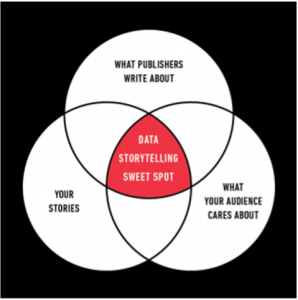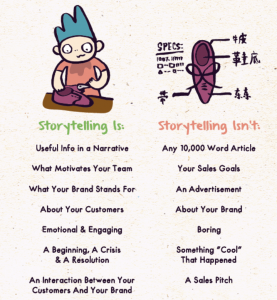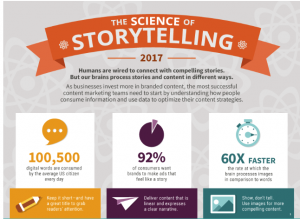Storytelling lies at the heart of persuasion, so a personal story can make or break a brand or business. When crafted correctly, the personal story can be the deciding factor as consumers consider where they should invest their time and money. But why are personal stories so crucial to how successful a business is? How can your personal story result in business conversions? And perhaps more importantly, how can you write one to set your brand apart from the competition?
Contents
Why Personal Stories are Vitally Important for Small Businesses
Your business’s personal story is one of the most effective ways to shape the public’s perception of your company and build brand loyalty. The personal story is so essential because it communicates to consumers what the upside of investing in you and your brand is. At the same time, this story can differentiate you from your competitors.

Your personal story differentiates your brand from the lot by conveying the why of your business or brand: Why should customers care about your business? And why should consumers choose this product or service over that of your competitors?
By providing decisive and compelling answers to these questions, great personal stories shape public perception and result directly in conversions.
A great personal story will result in business conversions by boosting personal engagement, thus turning brands into legacies. Now, who can’t get behind that?
What is a Personal Story?
Your personal story differentiates your brand from that of the competition. This differentiation can often be accomplished by answering some guiding questions. Within your personal story, consider explaining how you got into your particular business, or why are you passionate about the work you are doing.
People would rather invest their time and money in other humans rather than companies or corporations. Your personal story is how you humanize your brand.
Make the Personal Story Personal
Adding a human element to whatever it is that you do can allow individuals to relate to and connect with your work. And in this day and age, making genuine human connections is more important than ever. In fact, creating that human connection can actually boost traffic to your website by highlighting why you do what you do and emphasizing your personal values. Bigger corporations often neglect this personalized element, which makes it all the more important that those key components at the heart of your business are front-and-center for consumers to appreciate.

Personal stories clearly communicate your brand, its purpose, and the ideals and values which you stand for. The best personal stories take this a step further by proving that there is a reason – beyond accumulating a profit – that your business or service does what it does. By underscoring the bigger purpose or meaning of your brand, you give customers all the reason they need to choose to invest in you and your service.
When considering these ideas, it can be helpful to reflect upon the how and why of your brand’s origins. Was there a particular moment of insight that was influential to your brand’s creation? Did you overcome a unique hurdle that changed the trajectory of your business?
Evaluate the impetuses or turning-points in your brand’s journey. Doing so can help you decide which junctures are worth highlighting in your personal story. But, be wary of inundating readers with detail. Only include those occasions which you believe will resonate with the most strength.
How to Write Your Best Personal Story

Great personal stories can be thought of as both windows and doors. Through the window, an individual can reflect the message you impart upon their own lives. In this way, they can see themselves in the story. Through the door, the individual is invited to enter your world. Once emerged within, that individual can meet new people, be exposed to new ideas, and leave with newfound understandings.
Create Business Conversions Using Persuasive & Emotional Language in your Personal Story
It’s critically important that you interweave persuasive and emotional language into your personal story. Doing so can make your writing more vivid and relatable. Including persuasive and emotional language prompts readers to sympathize with your argument. Further, such inclusion is especially important considering that human decision-making is much more often based on emotion, rather than logic.
The Empathy Factor
Building empathy into your personal story is another way to siphon attention to your brand. Empathy – the capacity to understand the experiences or emotions of others – can produce direct conversions. According to the Harvard Business Review, a direct link exists between empathy and commercial success.
A study conducted by the Lady Geek Global Empathy Index found that in 2015, the 10 companies with the highest empathy score increased in value at a rate twice as fast as the bottom-10, while also accumulating 50% more earnings in the process.

Honesty is the Best Policy
Lastly, when crafting your business’ personal story, don’t be afraid to put the trials and tribulations of your brand on full display. Don’t shy away from the struggles and setbacks that your brand incurred. These moments are an indispensable chapter of your story. Show consumers where your brand came from and how you got to where you are now. Doing so will highlight the authenticity of you and your business.
If you are still unsure how to begin your business’ personal story, consider adapting Pixar’s Elements of Storytelling.


